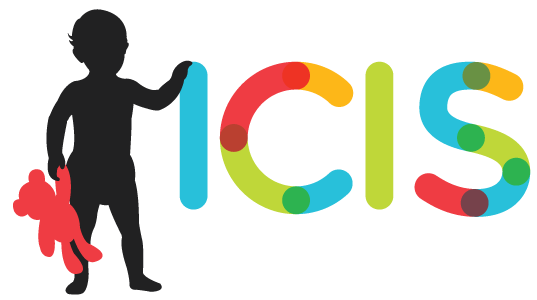ICIS 2022 Speakers
World renowned researchers from multiple disciplines will join us at ICIS 2022. Keynote speakers, Invited speakers, and the Presidential Symposium comprise of only some of the presentations to be expected.
Keynotes
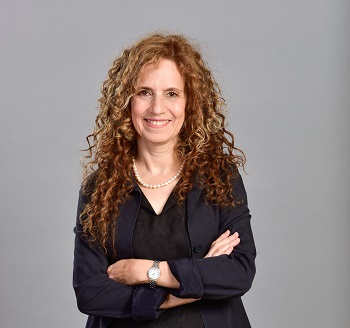
Ruth Feldman
Center for Developmental Social Neuroscience at the Interdisciplinary Center
Ruth Feldman, PhD, is the Simms-Mann professor of developmental neuroscience and director of the Center for Developmental, Social, and Relationship Neuroscience at the Interdisciplinary Center, Herzlia, Israel with a joint appointment at Yale University Child Study Center. Her research focuses on the neurobiology of human attachments, processes of biobehavioral synchrony, and the biology of resilience. Her studies on the role of oxytocin, the parental brain, and the neuroscience of empathy have been instrumental in describing the biological basis of human social collaboration. In several birth-to-adulthood studies she mapped the long-term effects of premature birth, maternal depression, and chronic trauma on brain and behavior. Dr. Feldman was named a highly-cited researcher by Web of Science, World Expert in parenting research by expertscape, and is the recipient of the 2020 EMET prize, Israel’s highest prize in the arts and sciences.

Charles Nelson
Harvard University
Charles A. Nelson III, PhD, is currently Professor of Pediatrics and Neuroscience and Professor of Psychology in the Department of Psychiatry at Harvard Medical School, and Professor of Education in the Harvard Graduate School of Education. He also holds the Richard David Scott Chair in Pediatric Developmental Medicine Research at Boston Children’s Hospital, and serves as Director of Research in the Division of Developmental Medicine. His research interests center on a variety of problems in developmental cognitive neuroscience, including: the development of social perception; developmental trajectories to autism; and the effects of early adversity on brain and behavioral development. He chaired the John D. and Catherine T. MacArthur Foundation Research Network on Early Experience and Brain Development and served on the National Academy of Sciences (NAS) panels that wrote From Neurons to Neighborhoods, and New Directions in Child Abuse and Neglect Research. Among his many honors he has received the Leon Eisenberg award from Harvard Medical School, an honorary Doctorate from Bucharest University (Romania), was a resident fellow at the Rockefeller Foundation Bellagio Center (Italy), has been elected to the American Academy of Arts and Sciences, the National Academy of Medicine, the British Academy and received the Ruane Prize for Child and Adolescent Psychiatric Research from the Brain & Behavior Research Foundation.
Presidential Symposium
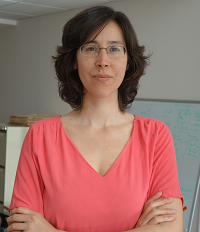
Alex Cristia
CNRS
After a BA in Letters at Universidad Nacional de Rosario (Argentina), a PhD in Linguistics at Purdue University, and a postdoctoral fellowship on neurobiology of language at the Max Planck Institute for Psycholinguistics (Netherlands), Alejandrina Cristia became a Researcher with the CNRS in 2013. In 2019, she became DR as well as director of her laboratory, the LSCP (UMR 8554, CNRS, EHESS, ENS, PSL University). In her work, she seeks to answer the following questions: What are the linguistic representations that infants and adults have? Why and how are they formed? How may learnability biases shape the world’s languages? To answer these questions, she combines multiple methodologies including spoken corpora analyses, behavioral studies, neuroimaging (fNIRS), and computational modeling. In consequence, she publishes in a range of venues (psychological and linguistic journals as well as speech technology conferences). She has received the 2017 John S. McDonnell Scholar Award in Understanding Human Cognition and the 2020 Médaille de Bronze CNRS for Linguistics.

Marc Bornstein
Eunice Kennedy Shriver National Institute of Child Health and Human Development; Institute for Fiscal Studies; ECD Parenting Programmes, UNICEF
Marc H. Bornstein holds degrees from Columbia College and Yale University, honorary doctorates from the Universities of Padua and Trento, and is Honorarprofessor at Heidelberg University. Bornstein is President Emeritus of the SRCD and held faculty positions at Princeton and New York Universities and appointments in Bamenda, Bristol, London, Munich, New York, Oxford, Paris, Santiago, Seoul, Tokyo, Toronto, Trento, and Tufts. Bornstein is Editor Emeritus of Child Development and founding Editor of Parenting. He consults for governments, foundations, universities, journals, publishers, media, and UNICEF. Bornstein has published in experimental, comparative, developmental, and cultural science as well as neuroscience, pediatrics, and aesthetics.
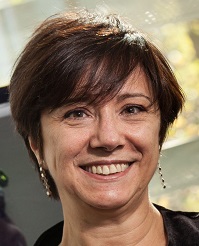
Nuria Sebastian Galles
Pompeu Fabra University
Nuria Sebastian received her PhD in Experimental Psychology from the University of Barcelona (UB) in 1986. After Post-doctoral training at the Max Plank Institute and CNRS in Paris, she became Associate Professor of Psychology, UB, in 1988, and Professor in 2002. In 2009, she moved to Universitat Pompeu Fabra where she leads the Speech Acquisition and Processing Group, Center for Brain and Cognition. She was a Visiting Scholar at several institutes including IRCS, University of Pennsylvania, ICN, University College (London), and the University of Chicago. She was coordinator of the Consolider-Ingenio 2010 BRAINGLOT and is PI of European Research Council (ERC) Advanced grant UNDER CONTROL (2013-2019). She was Vice-President of the ERC, 2014-2016 and is a Fellow of the British Academy, 2016. She is editor of several journals and a member of many expert advisory boards. She has authored over 120 publications (including Science, PNAS).

Linda Smith
Indiana University
Linda B. Smith, Distinguished Professor at Indiana University Bloomington, is an internationally recognized leader in cognitive science and cognitive development. Taking a complex systems perspective, she seeks to understand the interdependencies among perceptual, motor and cognitive developments during the first three years of post-natal life. Using wearable sensors, including head-mounted cameras, she studies how the young learner’s own behavior creates the statistical structure of the learning environments. The work has led to novel insights currently being extended through collaborations to robotics and artificial intelligence. She received her PhD from the University of Pennsylvania in 1977 and immediately joined the faculty at Indiana University. She won the David E. Rumelhart Prize for theoretical contributions to cognitive science and is an elected member of both the National Academy of Sciences and the American Academy of Arts and Science.
Invited Speakers
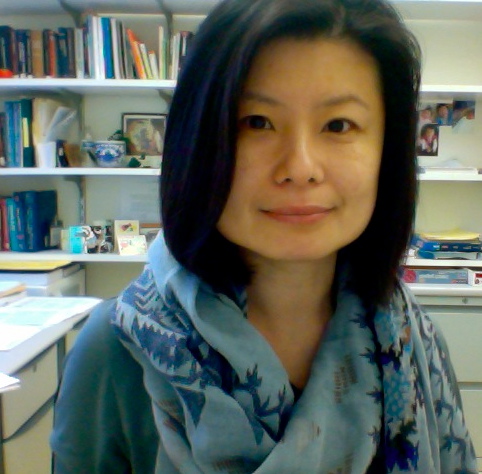
Su-hua Wang
University of California, Santa Cruz
Su-hua Wang was a first-gen student, who moved from Taiwan to the U.S. for graduate study and received her Ph.D. from the University of Illinois at Urbana-Champaign. Her doctoral research involved experimental work on infant cognition and ethnographic work on family storytelling with toddlers. She is a Professor of Psychology at the University of California, Santa Cruz. Her current research examines how early learning is shaped, in diverse ways, by children’s participation in cultural practices and their interaction with caregivers and cultural materials such as toys, books, and technology. She is the co-founder and director of UCSC’s New Gen Learning, an interdisciplinary research consortium for studying the strengths that children from racially and/or linguistically marginalized backgrounds bring to learning. Her work is funded by NIH, NSF, and the Spencer Foundation.
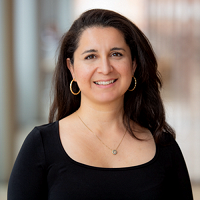
Dima Amso
Columbia University
Dima Amso is an associate professor in the Department of Cognitive, Linguistic and Psychological Sciences at Brown University. She has a BS in psychology from Tufts University, was trained at Cornell University and received a PhD in psychology from New York University in 2005. She served on the faculty at the Weil Medical College of Cornell University before joining Brown University. Her research examines the development of attention and memory in typically and atypically developing populations, with an emphasis on how environmental variables shape these trajectories. Dr. Amso’s research has been funded by the National Science Foundation, the National Institute of Mental Health, the National Institute of General Medical Sciences, and she is a recipient of the James S. McDonnell Scholar Award in Understanding Human Cognition.
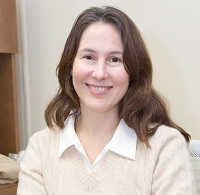
Frances Champagne
University of Texas at Austin
Frances A. Champagne, received an M.Sc. in Psychiatry (1999) and Ph.D. in Neuroscience (2004) from McGill University and is currently a Professor and Associate Chair in the Department of Psychology at the University of Texas at Austin. Dr. Champagne’s current research program is focused on addressing: 1) the epigenetic impact of perinatal exposures (i.e. stress. toxins), 2) the role of mother-infant interactions in shaping epigenetic outcomes in offspring, 3) the interplay between mothers, fathers, and offspring in the epigenetic transmission of behavior across generations (i.e. epigenetic inheritance), 4) resilience to the effects of early life adversity. Dr. Champagne combines studies in animal models and humans to determine the contribution of these molecular marks to neurobiological, behavioral and psychiatric outcomes. In 2007, Dr. Champagne received an NIH Director’s New Innovator Award and is currently funded by the NIH, NIA, NIMH, NIEHS, and NICHD.
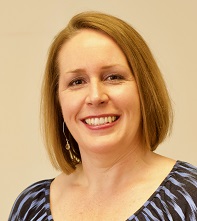
Jana Iverson
University of Pittsburgh
Jana M. Iverson, Ph.D. is Professor of Psychology at the University of Pittsburgh. Her research, funded by NICHD, NIDCD, and Autism Speaks, focuses primarily on the interface between the development of early motor skills and the emergence of communication and language in neurotypical development and in children with or at risk for developmental disorders.
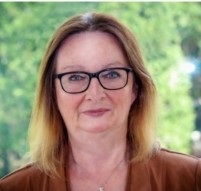
Diane Poulin Dubois
Concordia University
Dr. Diane Poulin-Dubois is Professor of Psychology at Concordia University where she holds a Research Chair in Developmental Cybernetics. She has published over 130 papers and book chapters on early cognitive and language development. She is a fellow of APS and the recipient of the 2016 Thérèse Gouin Décarie award and the 2019 Pickering award for contributions to developmental psychology in Canada. She is a member of the editorial board of a number of international journals, and an associate editor for Child Development. Her research has focused on the development of gender concepts, categorization, epistemic trust, bilingualism, and theory of mind.

Philippe Rochat
Emory University
Rochat grew up in Switzerland. He received his Ph.D. from the University of Geneva and moved to the US to study infants in the mid- 1980’s, first at Brown University, then at the University of Pennsylvania. He briefly taught at the University of Massachusetts/Amherst before joining the Faculty at Emory University where he is Professor of Psychology and established the Emory Infant and Child Laboratory. His main research focus is on the origins of human self-consciousness.
